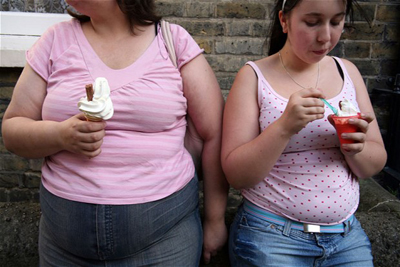 Washington:
Washington: Obese children may perform poorly in academics compared to their healthy-weight peers as they struggle to recognise when they have made an error and correct it, a new study has found.
The research by the University of Illinois is first to show that weight status not only affects how quickly children react to stimuli but also impacts the level of activity that occurs in the cerebral cortex during action monitoring.
“I like to explain action monitoring this way: when you’re typing, you don’t have to be looking at your keyboard or your screen to realise that you’ve made a keystroke error. That’s because action monitoring is occurring in your brain's prefrontal cortex,” said researcher Charles Hillman.
As an executive control task that requires organising, planning, and inhibiting, action monitoring requires people to be computational and conscious at all times as they process their behaviour.
Because these higher-order cognitive processes are needed for success in mathematics and reading, they are linked with success in school and positive life outcomes, he said. “Imagine a child in a math class constantly checking to make sure she’s carrying the digit over when she’s adding. That’s an example,” Hillman added.
In the study, the scientists measured the behavioural and neuroelectric responses of 74 preadolescent children, half of them obese, half at a healthy weight.
Children were fitted with caps that recorded electroencephalographic activity and asked to participate in a task that presented left- or right-facing fish, predictably facing in either the same or the opposite direction.
Children were asked to press a button based on the direction of the middle (target) fish. The flanking fish either pointed in the same direction (facilitating) or in the opposite direction (hindering) their ability to respond successfully.
“We found that obese children were considerably slower to respond to stimuli when they were involved in this activity,” Hillman said.
The researchers also found that healthy-weight children were better at evaluating their need to change their behaviour in order to avoid future errors. “The healthy-weight kids were more accurate following an error than the obese children were, and when the task required greater amounts of executive control, the difference was even greater,” he said.
A second evaluation measured electrical activity in the brain “that occurs at the intersection of thought and action,” Hillman said. “We can measure what we call error-related negativity (ERN) in the electrical pattern that the brain generates following errors. When children made an error, we could see a larger negative response.
“And we found that healthy-weight children are better able to upregulate the neuroelectric processes that underlie error evaluation,” said Hillman.
 Washington: Obese children may perform poorly in academics compared to their healthy-weight peers as they struggle to recognise when they have made an error and correct it, a new study has found.
Washington: Obese children may perform poorly in academics compared to their healthy-weight peers as they struggle to recognise when they have made an error and correct it, a new study has found.